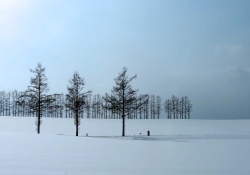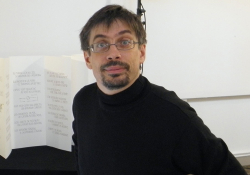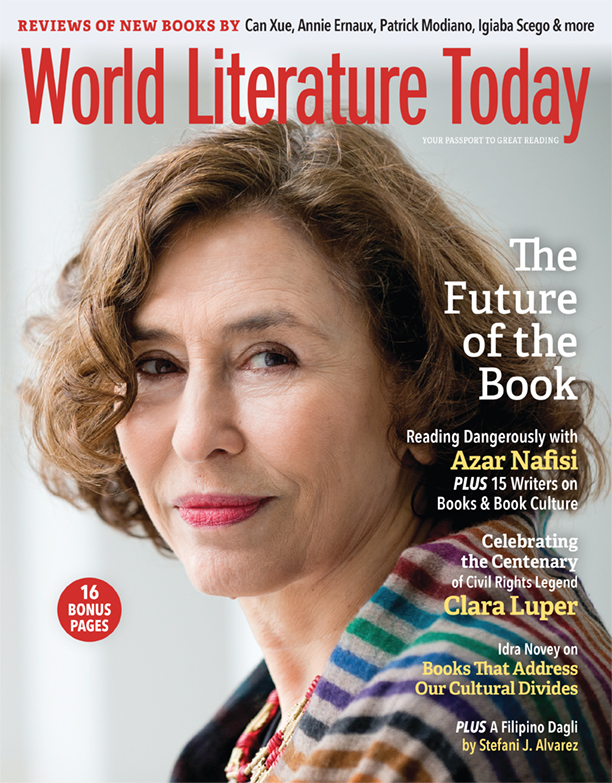Born in Winter: A Conversation with Shizue Ogawa
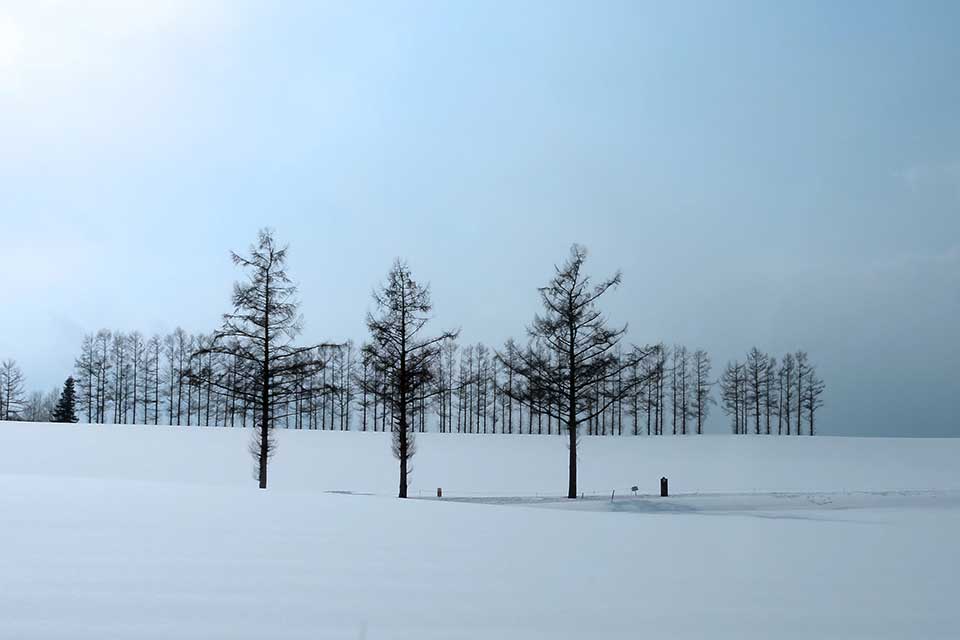 For Shizue Ogawa, creating is more important than publishing and selling, and yet her readership has been steadily growing in Japan and internationally. Her poetry paints the world with serenity and wonderment without hiding its underground turmoil. Born on the plains of Hokkaido’s eastern Kasai District, she remains very close to nature. Her work promotes cultural understanding among nations; its themes and forms bridge the literary traditions of East and West.
For Shizue Ogawa, creating is more important than publishing and selling, and yet her readership has been steadily growing in Japan and internationally. Her poetry paints the world with serenity and wonderment without hiding its underground turmoil. Born on the plains of Hokkaido’s eastern Kasai District, she remains very close to nature. Her work promotes cultural understanding among nations; its themes and forms bridge the literary traditions of East and West.
Alice-Catherine Carls: Your poetry flows freely with a light step. When did you start writing poems, and when did you decide to publish your first book?
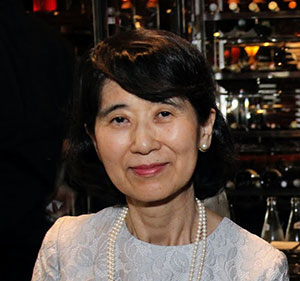
Shizue Ogawa: I was about fifty years old when I published my first book. My philosophy professor in college was the first person to read my poems. Since then, he has told me many times, “Go out into the world with poetry.” At first, I did not understand the meaning of what he was saying. Decades have passed since then. I was not conscious that I was writing poetry. Poems became part of life quite naturally. But I was writing. Some of my poems from that time remain. I was not interested in saving what I wrote. When I had a basket full of poems, I disposed of it without reading them again.
One year the professor suffered a heart attack. At that time, he said, “I will not die until you publish a book of poems.” I hurriedly began translating the poems I had into English. I should have made one book to give to the professor, but I decided to make three or four books, one for my parents and one for my home. I took the manuscript to a company that publishes private editions. When I asked the person in charge to make four books, he was surprised. He said, “Making four books costs the same as making three hundred books.” I thought, “What am I going to do if I make three hundred books?” I did not even know that I would be donating books to libraries.
After I learned to use computers, I became aware that what I write is not to be thrown away but to be preserved.
My poems became a collection of Japanese-English bilingual poems because I was an English teacher. The poems were easy to write, but it took me a long time to complete the English translation.
Carls: Can you give us examples of early poems’ themes and purpose? How many did you write? Were they for a special occasion, or simply to express your feelings and thoughts at a particular time?
Ogawa: When I started writing, I was not aware that I was writing poetry. Not even now. I don’t have a clear memory of the theme, the purpose, how many books I wrote, or on what occasions I wrote them. I never thought of it as expressing my emotions and thoughts in writing.
The oldest surviving poem is from a high school newspaper. I remember it well. It was March 1964, and I was about to enter my final year of high school. Our house burned down in the middle of the night, about ten minutes after a conflagration burned most of the town center. My house was close to the source of the fire. The flames raged and created stronger winds. People could not talk to each other because of their dry throats caused by the heat. Families with their hair standing on end ran around.
I ran up to my room on the second floor. I was still studying at that time, so I had a book and a pencil on my desk. I stood in a room where the temperature was getting hotter and hotter, and I thought, “I will never be able to come back to this room.” A friend’s letters and an album were the only things that I could hold in my arms. I ran downstairs. My mother was trying to get the children in the car and drive away. The windshield of her car exploded from a gush of water that spurted from the engine, which was on fire. The car hit a telegraph pole, which injured my mother. As I wiped the blood from my mouth with my hand, my mother told me to get out of the car and run to safety.
A few years ago, I sorted the letters I brought out at that time. Between the letters, I found the school newspaper from high school. My poem was in the newspaper. “Oh, I was doing something like this,” I remembered back then.
My family’s house was burned to the ground, so we huddled in a large shed. There, I used a cardboard box as a desk and studied.
My family’s house was burned to the ground, so we huddled in a large shed. There, I used a cardboard box as a desk and studied. I wrote the poem below:
A Soul at Play
Eat Father’s meat.
Eat Mother’s meat.
Separate the joints and cut the muscles.
Tear the meat and suck the blood.
My teeth are wet with red.
Father’s tastes like a wild beast.
Mother’s tastes like a white peach.In my heart, a hundred horses play.
Beyond the plains I see the glistening
of Father’s hands
and Mother’s tears.
My playful heart rises from the black earth
and soars up to the heavens
grasping a horse’s mane.Ah, do not constrain this power of mine!
I am a soul at play.Translated by Donna Tamaki & Shizue Ogawa
from Water — A Soul at Play (I)
Later, when my mother read the poem, she said, “Poor thing, you were hungry then.” Then for a long time my parents sent me a lot of food.
Carls: You told me once that you write poetry as easily as you breathe, that you see the world as a poem. You also have a way to tease a poem out of emails I send you. This is a very rare quality, to live poetry at every minute of your life and to see poetry in everything. Poetry to you is a way of being. Can you explain your experience of poetry for us?
Ogawa: There is no special experience with poetry. I think that there is a language in people’s hearts that becomes the mother, from which songs and poems are formed. I believe that songs and poems exist in the hearts of infants, and even in persons who seem to have lost their ability to speak.
The text of one of the emails you wrote me felt beautiful. I tried to divide it into verses. Poems were born from the sentences of your email. It was an amazing experience. I did not do anything in particular. We are all poets. Everything becomes the subject of the poem. Poetry is in life.
Everything becomes the subject of the poem. Poetry is in life.
Carls: The Japanese concept of satori (i.e., as I understand it, the poet being central to the poem and to the world described in the poem while at the same time remaining invisible to the reader, effacing himself/herself from the poem) is a fascinating concept. How is satori present in your works? Are there other Japanese literary traditions that influence your work?
Ogawa: Enlightenment (satori) encompasses all your thoughts. It is the world of Buddhism that you reach through practice. It is to reach the “state of nothingness” beyond natural phenomena. It transcends one’s existence, materiality, and values.
I do not know if I have reached the state of enlightenment. But I have to come to terms with the “rapidly changing outside world,” and that causes “something to be born one after another” inside me. In the process, I develop a sense of “entrustment.” It is not about “doing.” It is not about “writing,” it is about “leaving it to the pen.” I do not know if that means that I am influenced in any way by Japanese literary traditions.
Carls: You did not study haiku, and yet you have great knowledge of it. Is this form of writing not used by you at all, or is it somehow inscribed in your poetry?
Ogawa: I never studied haiku, but it has a big influence on me. Haiku is the original source of Japanese meaning and rhythm. The Japanese people naturally think about things in their hearts in a haikulike rhythm. I think that is in the hearts of the Japanese people.
Carls: Your books are exquisitely published, with specially chosen paper, color, font, cover, and layout. Each one is unique. They are different from most trade books. They are truly an aesthetic experience that adds to the “pleasure of the text.” However, the reader cannot find your books on the market because you are not selling them. Yet you have a vast network of friends and fans who know your work and translate it in several languages. Can you tell us more about this aspect of your work, what you hope to accomplish, and the organization you use to achieve your goals once you have produced a book? How and whom do you want to read you?
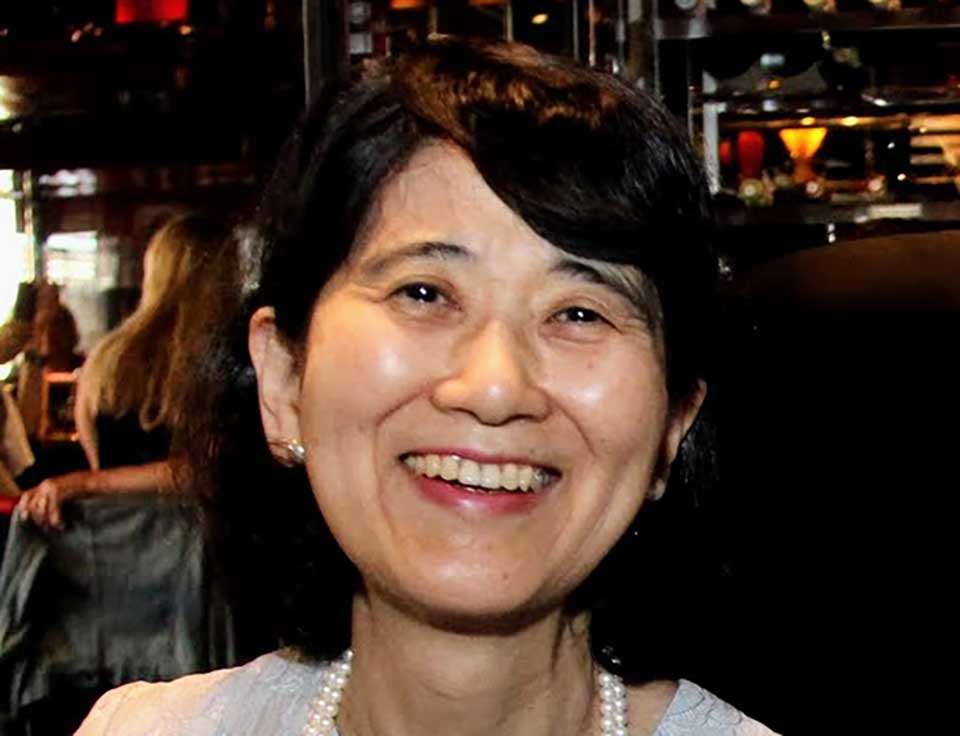
I don’t discuss poetry with anyone. I have nothing to argue about.
Ogawa: Your question is interesting. My books are not on the market. In order to be socially responsible, they are priced, but I am not interested in selling them. I’m interested in creating. As soon as I publish one book, I start working on the next one.
One day my poems went viral. Suddenly, emails arrived: “Send me your poem,” or “Can I translate your poem?” I often do not know the writers, but I trust them. I am unclear as to what my goal is with my publications. I don’t even know what kind of readers I want to have. I’m just publishing books. I don’t discuss poetry with anyone. I have nothing to argue about.
But there is an unforgettable event. I was teaching English at Osaka Kyoiku University. One day, while I was making copies in the university’s Xerox room, I met Professor Mari Rose Ishiguro. On that day, in the copy room, Professor Ishiguro took one of her works out of her bag, signed it, and handed it to me. Later, as a thank-you, I gave her Water — A Soul at Play (I). She put her bag down on a bench by the library and started reading it while standing. She said, “God’s windows are open anytime and anywhere.”
After that, Professor Ishiguro contacted her sister, Madeleine Umewaka, who is a member of the Noh Umewaka-ryu family and the mother of Soray Umewaka, my English translator. Madeleine Ishiguro introduced me to the Belgian ambassador. Soon after, I was invited to the XXIVth International Biennial of Poetry held in Liège, Belgium, in 2005. Dr. Ishiguro and Madeleine helped me to send my poetry collection there ahead of time.
Carls: Today most books, such as paperbacks or trade books, are produced rather quickly. For most authors, the book cover, size, length, and font vary from book to book and from publisher to publisher. Yet your books are remarkably similar to each other visually. White predominates on the cover, and the font is a delicate blue. Each book is placed in a white case of exquisitely textured rice paper. How do you choose these features? Do you follow a particular tradition of bookmaking?
Ogawa: When it comes to making books, I have not been influenced by anyone. I have never used anything as a reference. When I published my first book, I simplified the format so that I could publish multiple books. That way, I did not have to hesitate when I published my second and third books.
From the beginning, I wanted to publish several volumes in the same format, so I send my manuscripts to only one publisher. At first, my books were made in Kyoto, and I traveled there. Now they are made in Tokyo, so I go to Tokyo. I decide everything—cases, paper, font, etc. If anything inspires me in the production of the book, it is the winter wilderness of the Tokachi Plain in Hokkaido. I was born in winter, in the heart of the plain, in a rural area with long daylight hours. A clear field of snow remains in my heart. The plain spreads out like a fan all the way to the Pacific Ocean. If you stand there alone, you hear the music and see the way forward.
Carls: Books that have similar physical properties usually form a series. Your books are all entitled A Soul at Play, with a different subtitle for each of the eight books. How did you come up with the theme of playfulness of the soul? That image is quite a vision. How did you choose each of the eight subtitles for your books, the latest being “Prayer?”
Ogawa: The titles of the published A Soul at Play volumes are: Water (I), Flames (II), Sound (III), Wind (IV), Sea (V), Land (VI), Clouds (VII), and Prayer (VIII). Each topic symbolizes freedom, as does the poem below from “Flames – A Soul at Play (II).”
Even on days when I live far from my home,
my heart throws itself into the flames
and reeking of burning hair, twists out of shape.
In the ruins of the fire
I hear soft voices speaking.
I see Mother standing in a vacant lot.My soul is reborn from those flames each day.
Until the day of my cremation
flame-shaped bruises will move on my skin.
Ah, this power of mine!
To drop my sister’s hand and run away that day!Play,
my soul.
O flames of freedom!Translated by Donna Tamaki & Shizue Ogawa
from Flames — A Soul at Play II (ll. 20–33)
I have a special feeling about “Prayer” in volume 8. The people who died in the Great Tōhoku Earthquake of 2011 were in my heart.
Carls: Your poetry in form and spirit shows a profound knowledge of European poetry and art. You often use Western poetry forms, such as the villanelle, and you refer to the works of many Western poets, musicians, or painters, such as Brahms’s Zigeunerlieder. Can you speak to the influence of the West on your work and how important it is for you to “unite” Japanese traditions and Western traditions? This aspect of your work was recently rewarded with a special prize created for the 570th anniversary of Leonardo da Vinci’s birth by the French government, which recognizes you as an heir to the spirit of the Italian Renaissance artist. That is such a great recognition of your work.
Ogawa: When I studied English literature, I spent a lot of time getting to know John Keats. As a surgeon’s apprentice, he often had to hold down patients who were undergoing surgery without anesthetics. Keats sings the praise of eternal beauty in his poems because he knew how fragile it is. Virgil, Dante, and Ganjin Wajo are making me stronger. They taught me that art and religion are born from nameless people, and they are taken over by nameless people.
March 2023
Translation from the Japanese
A teacher, artist, and poet, Shizue Ogawa has published eight bilingual (Japanese/English) books, and her work has been translated into more than ten languages. She has been awarded the Grand Prize of the National Sakura Pastel Crayon Art Exhibition (1963), the Antonio Viccaro International Poetry Prize (2011), the Gerard Manley Hopkins Society Award (2014), and the Prix Ovide from the Cénacle européen de Poésie, Arts et Lettres (2020).

